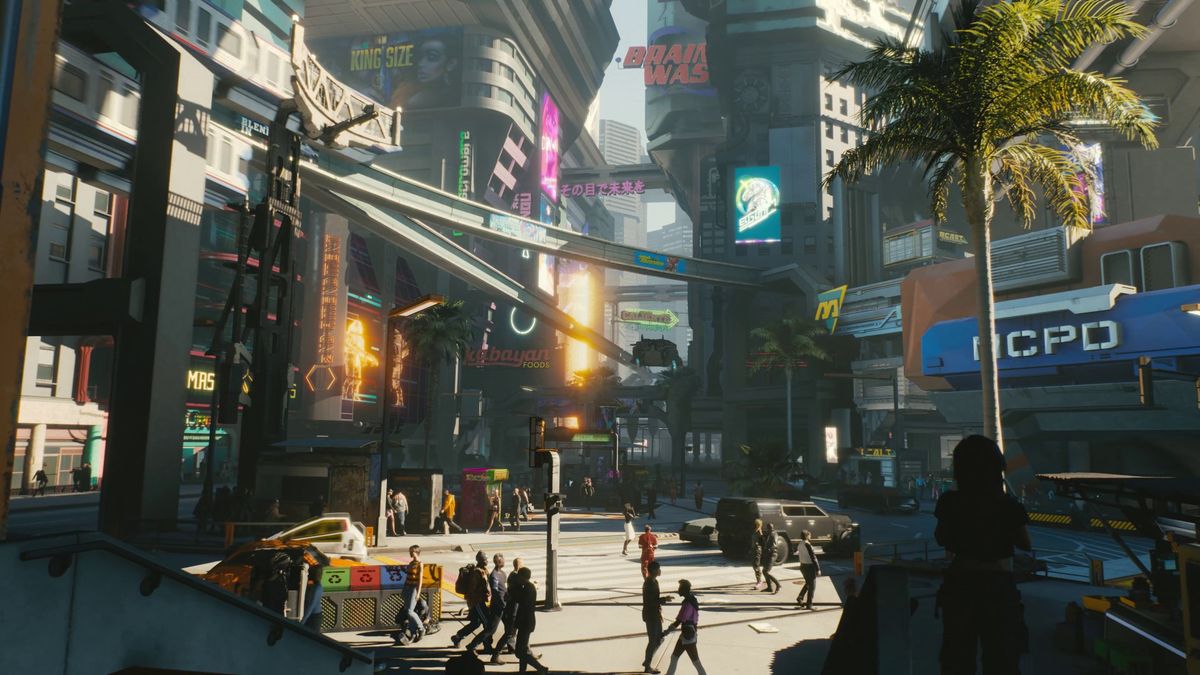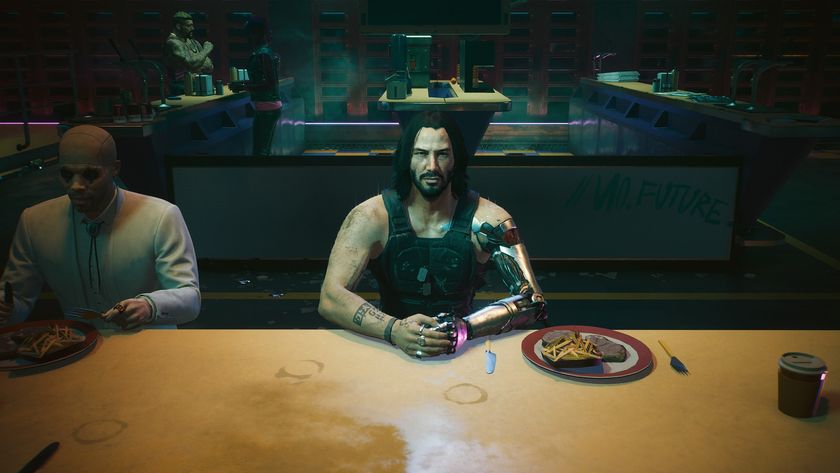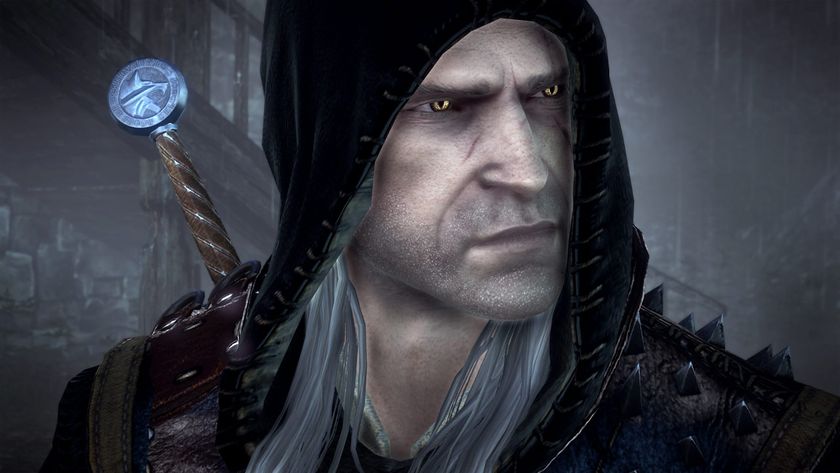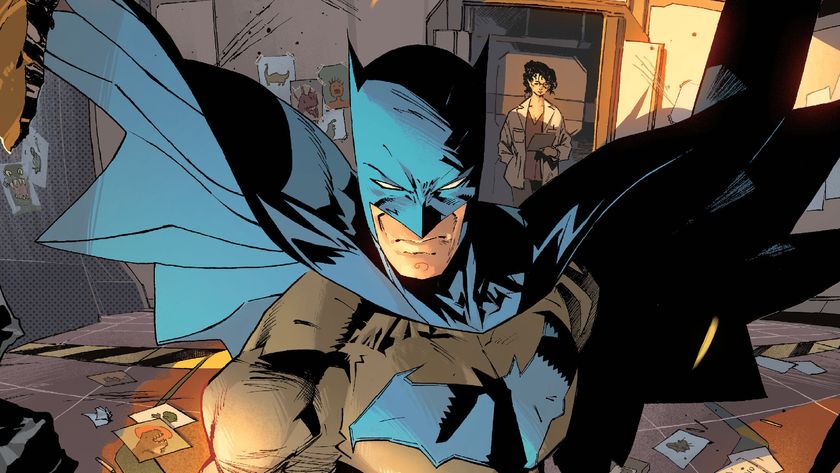Why Cyberpunk 2077's super into mega-corporations and just Japan in general
Cyberpunk 2077 goes corporate in its latest frame-by-frame analysis

The big thing about Cyberpunk 2077's future is that we're supposed to see how we got there from here - it's only set about 60 years in the future, and a defining trait of cyberpunk fiction is taking our hopes and fears about progress and technology then making them bigger. The latest post in developer CD Projekt Red's ongoing frame-by-frame trailer breakdown series tells us a little more about what makes up this near-future world: megacorporations and the cultures they remain rooted in.
The setting for Cyberpunk 2077 is Night City, a megalopolis on the coast of California. But the major players in both its political power struggles and criminal underworld come from all over. One of the biggest is the Arasaka Corporation, a Japanese giant that uses Night City as a center for overseas distribution. Arasaka is serious about protecting its assets by any means necessary: lawyers in shiny offices, cyberassassins hidden on the payroll, and powerful crime bosses like the Yakuza on speed dial. Do they still have speed dial in the future? "Starred on their contact list" is so much less catchy. Anyway.

American outfits like the arms-dealing Militech operate out of Night City as well, but the blog post specifically calls out the varied Asian influences of Cyberpunk 2077's setting: expect to find shops, restaurants, and overall cultural nods to China, the Philippines, India, and, of course, Japan. In the future, there will be maneki-neko.
Tech giants, yakuza, ramen stands. Why all the love for Japan in Cyberpunk 2077? It's easy to track: the genre's emergence in the '70s and '80s corresponded with Japan's rise as a global technological and economic power. Many of the western writers who helped define cyberpunk expounded on the mixture of awe and trepidation for Japan that they saw around them as they shaped their near-future stories - including original Cyberpunk tabletop RPG creator Mike Pondsmith.
The Japanese economic miracle ended in the early '90s and the way the West looks at Japan has shifted in turn - going from fears of zaibatsu bowling over domestic industries to moral panic over importing adult-oriented cartoons to the modern day, where you can download an app from Sanrio that gives you points for poking a cartoon egg. But long after Japan's bubble burst, its corporate, cultural imprint on cyberpunk remains.
For more on life in Cyberpunk 2077, read about Night City's relaxed approach to gun control.
Sign up to the 12DOVE Newsletter
Weekly digests, tales from the communities you love, and more
I got a BA in journalism from Central Michigan University - though the best education I received there was from CM Life, its student-run newspaper. Long before that, I started pursuing my degree in video games by bugging my older brother to let me play Zelda on the Super Nintendo. I've previously been a news intern for GameSpot, a news writer for CVG, and now I'm a staff writer here at GamesRadar.

Cyberpunk 2 associate game director reveals his greatest development secret: 10 hour loops of music like "Epic Sax Guy" that "gives me insane focus and clarity"

Before he was Cyberpunk 2's associate director and was just "employee #86," CDPR dev says it took him 46 tries to beat an infamous boss in The Witcher 2: "I was losing my mind"
Most Popular






